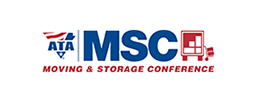Top 10 Employee Relocation Tips

Relocating for work is a major life event that combines the stress of moving with the excitement of a new career opportunity. Whether you’re an employee gearing up for a big move or an HR manager overseeing a corporate relocation, there’s a lot to consider. Relocation can disrupt routines, affect family life, and create logistical challenges—but with the right approach, it can also be a smooth and rewarding transition.
1. Start Planning Early
The key to a successful relocation is starting early. Once you’ve accepted a job offer or confirmed your transfer, begin organizing your timeline and to-do list. Delays in scheduling movers, booking travel, or securing housing can quickly cause unnecessary stress. Create a moving checklist that includes every step of the process—packing, utility setup, address changes, and move-in dates.
2. Understand Your Relocation Package
If your employer is offering a relocation assistance package, take time to fully understand what’s included. Some companies offer comprehensive services covering:
- Moving expenses
- Temporary housing
- Home sale or purchase assistance
- Travel reimbursements
- Miscellaneous expenses like meals or child care during the move
Other employers may provide a flat relocation bonus or a reimbursement limit. Either way, clarify the scope of the support provided so you can budget accordingly and avoid surprise costs. Ask for all details in writing and confirm timelines for reimbursement.
3. Choose a Reliable Moving Company
Not all movers are created equal. Take the time to research reputable moving companies, especially those with experience in corporate or long-distance relocations. Ask for recommendations, read online reviews, and verify that they’re licensed, insured, and accredited by organizations like the Better Business Bureau (BBB) or the American Moving & Storage Association (AMSA).
Get quotes from multiple companies and compare services. Don’t just look at price—review what’s included, from packing services and moving insurance to estimated delivery windows.
4. Declutter Before Packing
Moving is the perfect excuse to declutter. Go through each room and sort items into categories: keep, donate, sell, or toss. Reducing your belongings not only makes the packing process easier, but it can also significantly cut moving costs, especially for long-distance moves charged by weight or volume.
Host a yard sale, donate gently used items to local charities, and responsibly dispose of unwanted clutter. You’ll thank yourself when you’re unpacking in your new home.
5. Keep Important Documents Handy
In the midst of moving boxes and shifting priorities, important documents can easily get lost. Keep a dedicated folder or digital file with all your essential documents, including:
- Job offer and relocation agreements
- Identification (passports, driver’s licenses)
- Lease or mortgage paperwork
- Moving company contracts
- Insurance details
- School or medical records
Have both physical and digital copies and carry them with you during the move, not in the moving truck.
6. Plan for Temporary Housing If Needed
Sometimes there’s a gap between arrival and move-in, especially if you’re waiting to close on a home or finalize a rental. In these cases, having a plan for temporary housing is essential. Look into furnished apartments, extended-stay hotels, or Airbnb options close to your new workplace.
Your employer may offer corporate housing support or cover some short-term living expenses. Be sure to ask HR about available resources.
7. Set Up Utilities and Address Changes in Advance
Before your move, coordinate the disconnection of utilities (electric, gas, water, internet) at your current residence and the activation of services at your new home. Schedule these well in advance to avoid service gaps.
Also, update your address with the U.S. Postal Service, banks, credit card companies, insurance providers, and any subscriptions or online shopping accounts. The last thing you want is important mail arriving at your old address.
8. Explore Your New Area Ahead of Time
If possible, take a pre-move trip to your new city to explore the area, check out potential neighborhoods, and scope out commuting options. Research public transportation, grocery stores, gyms, and other amenities. If you have children, investigate nearby schools and daycare options.
If a pre-move visit isn’t feasible, use virtual tools—Google Maps, neighborhood forums, school rating websites, and apartment tour videos can help you get familiar remotely.
Feeling confident about where you’re moving to makes the adjustment far smoother.
9. Involve the Whole Family
Relocation doesn’t just impact the employee—it can be an emotional and logistical shift for spouses, children, and even pets. Keep lines of communication open and involve your family in the planning process. Let them ask questions, express concerns, and help make decisions, such as choosing a new home or neighborhood.
10. Give Yourself Time to Adjust
Even with the best planning, relocation comes with emotional and psychological adjustments. You’re not just starting a new job—you’re learning new streets, making new friends, and adjusting to a new lifestyle.
Be patient with yourself and your family. It can take several weeks—or even months—to feel settled. Take small steps each day: meet neighbors, explore the area, and establish a routine. If your company offers relocation support or employee resource groups, don’t hesitate to tap into them for guidance and community.
Fuller Moving: Affordable Movers in California
At Fuller Moving, we understand that employee relocations require precision, care, and excellent coordination—and that’s exactly what we deliver. As trusted Sacramento movers, we specialize in providing streamlined, stress-free moving services for professionals and families alike. With decades of experience, our team ensures every detail of your relocation is handled with professionalism, whether you’re moving across town or across the state.
Among the many moving companies in Sacramento, Fuller Moving stands out for our commitment to customer satisfaction, transparent pricing, and comprehensive moving support. As one of the most reliable California moving companies, we’re known for our local expertise and nationwide capabilities. Whether you’re relocating for work or assisting your employees with a smooth transition, we’re here to make the process seamless from start to finish.
Move Smart with Fuller Moving
Ready to take the stress out of relocation? Contact Fuller Moving—your trusted Sacramento movers—for a smooth, reliable, and professional moving experience. Get your free quote today and discover why we’re one of the top-rated moving companies in Sacramento and across California!















One Person has left comments on this post
Really helpful tips for smooth employee relocation! I especially liked the point about planning early and supporting employees emotionally during the move — that’s often overlooked. In our experience at Aarya Packers
, proper packing and safe transportation also play a key role in stress-free corporate relocations. Thanks for sharing such practical advice!